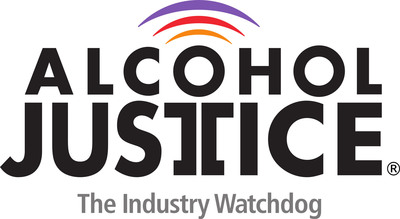Los Angeles Community Town Hall on the 4 a.m. Bar Bill Concludes: 4 A.M. Last Call Means No Safety, No Peace, No Control
LOS ANGELES, March 10, 2018 /PRNewswire/ -- California Alcohol Policy Alliance (CAPA), Alcohol Justice, Institute for Public Strategies, and Behavioral Health Services in Hollywood sponsored a Community Town Hall meeting and panel discussion last Thursday for residents of Los Angeles and West Hollywood on allowing alcohol-serving establishments in California to stay open until 4 a.m.

The forum was organized in response to the State legislature's fourth attempt over the past six years to change the state's last call policy for alcohol sales at bars, restaurants, and nightclubs. At the end of the lively, passionate discussion, an overwhelming majority of those present were convinced that the current bill, SB 905, like the previous three that failed, will spread alcohol overconsumption, loss of life, injury, and nuisance across the state. Next steps were also declared: tell California's elected leaders and the "late night entertainment" lobby ? STOP the 4 a.m. Bar Bill!
Panelist Carson Benowitz-Fredericks, Research Manager at Alcohol Justice, presented data showing:
- California already suffers more annual alcohol-related harm than any other state
- 10,572 deaths
- 17,700 hospitalizations
- 123,841 years potential life lost (chronic causes)
- 180,017 years potential life lost (acute causes)
- $34 billion cost to public
- $13.7 billion cost to government
- Fatal DUI is a chronic, worsening problem for California.
- There is no such thing as "local control" in alcohol policy. The harm from one city's decision to change last-call times splashes over every surrounding community.
In a written statement, Los Angeles City Councilmember Paul Koretz stated, "While we want our local businesses to thrive, no good can come from serving alcohol until 4 a.m. If this passes we can expect more DUIs, more drunk driving injuries and more alcohol related deaths." He went on to say, "No district is an island and it is outrageous to call this a local discretion bill when its impacts will spill over into adjacent jurisdictions that will be stuck with the very expensive public safety bill - the cost of life and death."
A peer-reviewed metal analysis by the U.S. Community Preventive Services Task Force, Chaired by Jonathan Fielding, M.D., M.P.H., M.A., M.B.A, Distinguished Professor UCLA Fielding School of Public Health and UCLA Geffen School of Medicine, found that every 2-hour increase in last-call times results in greater vehicle crash injuries and E.R. admissions. (Hahn et al., 2010)
Panelist Dr. Deborah Allen, ScD, Deputy Director of the Health Promotion Bureau at the LA County Department of Public Health, presented compelling data from Alcohol Outlet Density and Alcohol-Related Consequences by City and Community in Los Angeles County, 2013, a report from the department published in 2016.
"Los Angeles and West Hollywood have very large densities of bars, clubs and restaurants, which already impact the safety and livability of our neighborhoods," said Sarah Blanch, Regional Director of the Institute for Public Strategies. "The communities we work and live in are concerned about increasing alcohol problems even further with longer serving hours."
Gilbert Mora, Prevention Coordinator at Behavioral Health Services in Hollywood commented, "The research is clear. Extending closing times and removing restrictions on hours of sale is associated with increases in serious alcohol-related problems, including violence, emergency room admissions, alcohol-impaired driving, and motor vehicle collisions."
In California, more than 75% of alcohol-related deaths come from homicide, poisoning, falls, and motor vehicle crashes, all of which could increase with the usual binge drinking cutoff time extending to 4 a.m. Levels of intoxication continue to increase for 30 to 90 minutes after the last drink, so for many 4 a.m. last call drivers, their intoxication could peak at 5 or 5:30 a.m., not an unusually early commute time for workers in many parts of the state.
"The negative cumulative effects on our neighborhoods has already and will continue to degrade our quality of life," stated panelist Oren Katz, Hollywood Hills West Neighborhood Councilmember. "We cannot achieve, as our mayor would like, 'walkable streets' when we our police department is already stretched thin; when we are in the middle of an ever-growing homeless crisis; when we are tasked with regulating the legalization of drugs; and we are in the middle of fighting the proposal to extend the drinking hours until 4 a.m."
SB 905 is scheduled for a hearing in the California Senate Committee on Governmental Organization on Tuesday, July 13, 2018. Those opposed to changing last call alcohol sales policy in California are encouraged to visit AlcoholJustice.org and TAKE ACTION by telling committee members to stop SB 905, and choose California lives over nightlife commerce.
For more information:
Michael Scippa, Public Affairs Director, Alcohol Justice ? (415) 548-0492 [email protected]
Sarah Blanch, Regional Director, Institute for Public Strategies ? (310) 215-9924 x133 [email protected]
SOURCE Alcohol Justice
News published on and distributed by:



